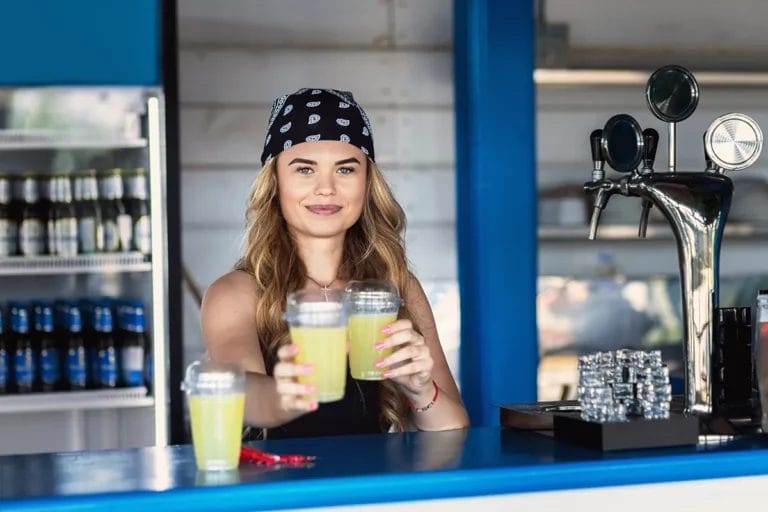- Last Updated:
- 10/8/2024
- Lindsey Fliger
- Criminal charges
- Fines
- Business closure
- Damage to your reputation
- Losing your liquor license
You’ve probably heard about big, scary consequences just like these if you so much as mix up your garnishes or use the wrong ice cube shape. Anybody who’s worked in the bartending industry knows that liquor laws are a big deal.
So how do you make sure that you and your business stay compliant? Moreover, where do you even start?
We’re here to help with a breakdown of how liquor laws work and to answer your biggest questions about how to sell alcohol legally.
Liquor Licensing 101
Knowing how to serve alcohol responsibly is one thing, but navigating the intricacies of getting a license to sell alcohol? That can feel downright overwhelming. It’s easy to get frustrated as you consider questions like, “Where do I start?” “Do I even need one?” and, “Is it worth the cost?”
The most important thing to remember when it comes to liquor laws is that regulations can vary by state, county, and sometimes even city. While there are many similarities, the rules can differ depending on where you live and work.
For example, Ohio has six liquor license classifications that depend on your business type. Only businesses and organizations can obtain a liquor license. On the other hand, Louisiana requires both businesses and individuals who serve alcohol to have a liquor license. But, both states allow individual counties or parishes to outlaw the sale or service of alcohol.
This just goes to show how much laws can vary by region, and why it’s so important to research your local requirements. Despite the specific and important differences in local regulatory practices, there are many common requirements and procedures across the country.
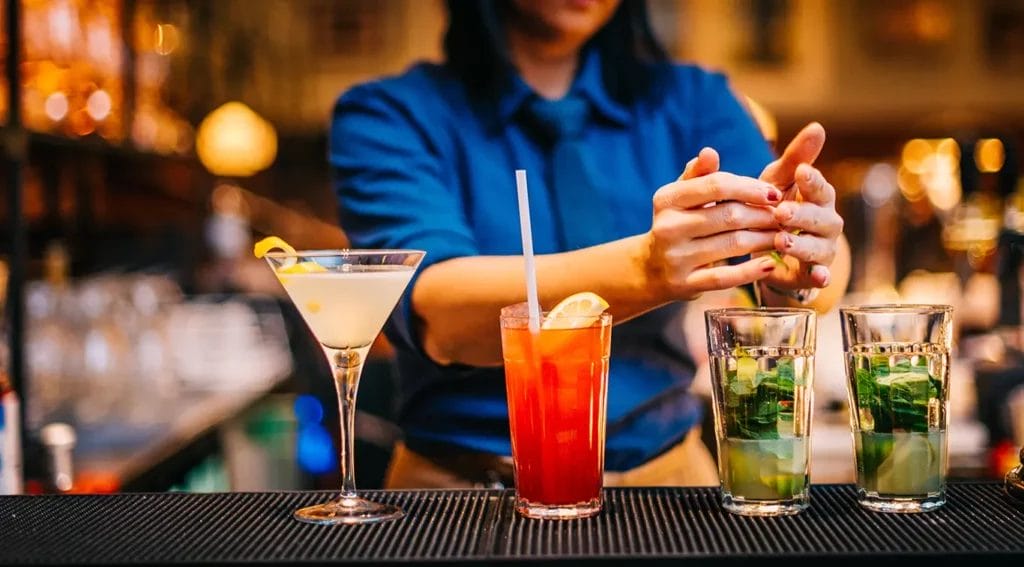
Different Types of Liquor Licenses
“Liquor license” is a blanket term for several tiers and types of alcohol licenses. These are broken down into classes that indicate the nature of a business, the type of alcohol being sold, and the kind of establishment it’s connected to.
The first major distinction between liquor license types is on-premises versus off-premises consumption.
An on-premises license applies to establishments where liquor, beer, or wine are served and consumed, like a bar or restaurant. On the other hand, an off-premises license is for businesses that sell packaged alcohol not consumed on-site (e.g., convenience stores, supermarkets, liquor stores).
Once you determine whether you are an on- or off-premises consumption business, you can look more closely at your business type. While every state is a bit different, the license classifications generally fall into the following categories:
- Temporary/special event license: These permits are issued for one-time events, such as weddings, festivals, or corporate parties.
- Catering liquor license: This license may have restrictions on the number of drinks or what type of alcohol can be served depending on where an event takes place.
- Brewery/distillery/winery license: These licenses cover establishments that both manufacture and sell alcoholic beverages for consumption on- or off-premises.
- Distributor/wholesaler license: These licenses cover the “middlemen” in the supply chain who purchase alcohol from a manufacturer and sell it to retailers.
- Manufacturer’s license: This license is typically for large-scale businesses that manufacture, distribute, and sell alcoholic beverages.
- Hotel/motel liquor license: Businesses in the hospitality industry need a license that covers on-premises consumption for in-room minibars, restaurants, bars, and event spaces.
- Restaurant liquor license: Most restaurant liquor licenses stipulate that the majority of revenue must come from food sales.
- Club liquor license: Private clubs — such as country clubs and fraternal organizations — are eligible for licenses that only allow sales to members and their guests.
Many agencies also offer specialty licenses for more specific circumstances and business types.
For example, some states require a BYOB (“bring your own beer”) license if guests provide their own alcohol. Or, with the rapid demand for online and delivery services, many places require a shipment and delivery license to sell alcohol.
The type of alcohol a business sells or produces also impacts the kind of license required. Each class has a letter designation ranging from A to K that indicates whether a business serves spirits, wine, beer, or all three.
Finally, many states have liquor license quotas that limit the number of licenses available. States base these limits on population density, meaning the quotas will increase if more people live in a particular area. If there are no available licenses due to this system, you may have to apply and wait in line until a space frees up.
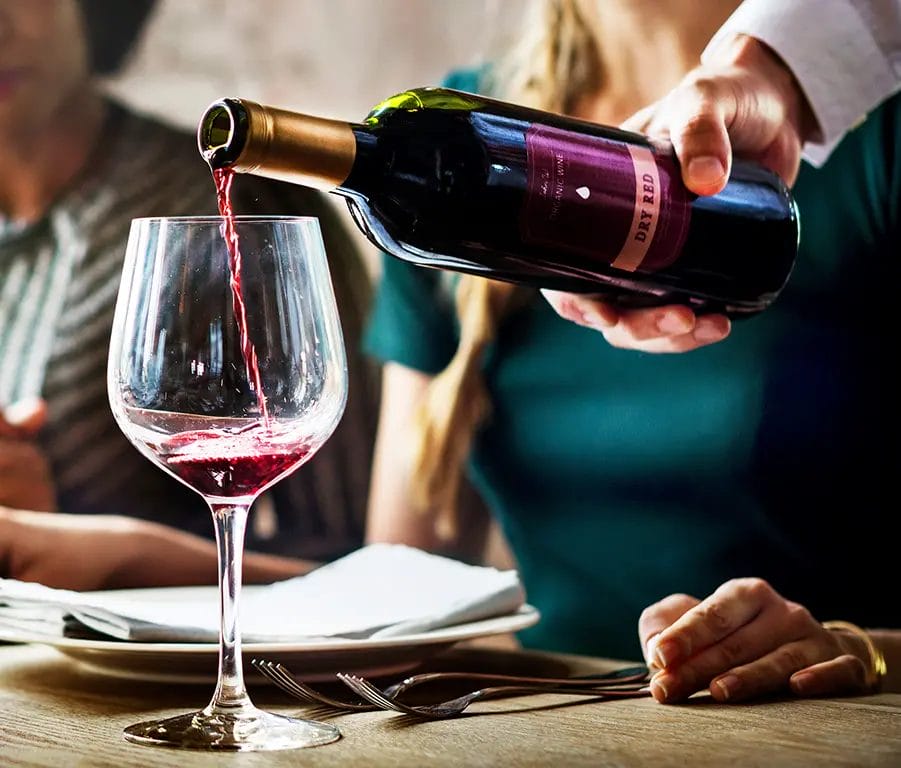
What You Need to Get a Liquor License
The specifics will vary depending on where you live and operate, but most areas require you to meet specific criteria and produce the necessary documents to apply for a liquor license.
These can include:
- Passing a background check
- Being at least 21 years of age
- Proof of residency in the state
- Business entity documents (such as business registration)
- Proof of ownership or lease where alcohol will be sold
- Proof of insurance
- Zoning compliance confirming your business is approved
- Floor plan to show where alcohol will be stored and served
- Plans for signage and advertising
You also need to complete alcohol safety training and produce proof of certification. Online programs like TiPS offer individual and business courses covering all the essential information. Some states require applicants to have a region-specific certificate to sell alcohol.
Depending on the nature of your business, you may also need to have additional documentation before you can apply for your liquor license, such as your business license. Establishments that serve food must have a health permit, and many states require fire and safety permits.
The liquor license application and approval process can take several months, so it’s important to have all of your necessary documents prepared and up-to-date to avoid any further delays. Always check with your state agency before submitting an application to ensure you have everything you need.
How to Get a License to Sell Alcohol
Once you determine what kind of license you need and have all of the necessary documents prepared, you can apply for your liquor license.
We’ve compiled the Alcoholic Beverage Control (ABC) agencies for each state to help you get started:
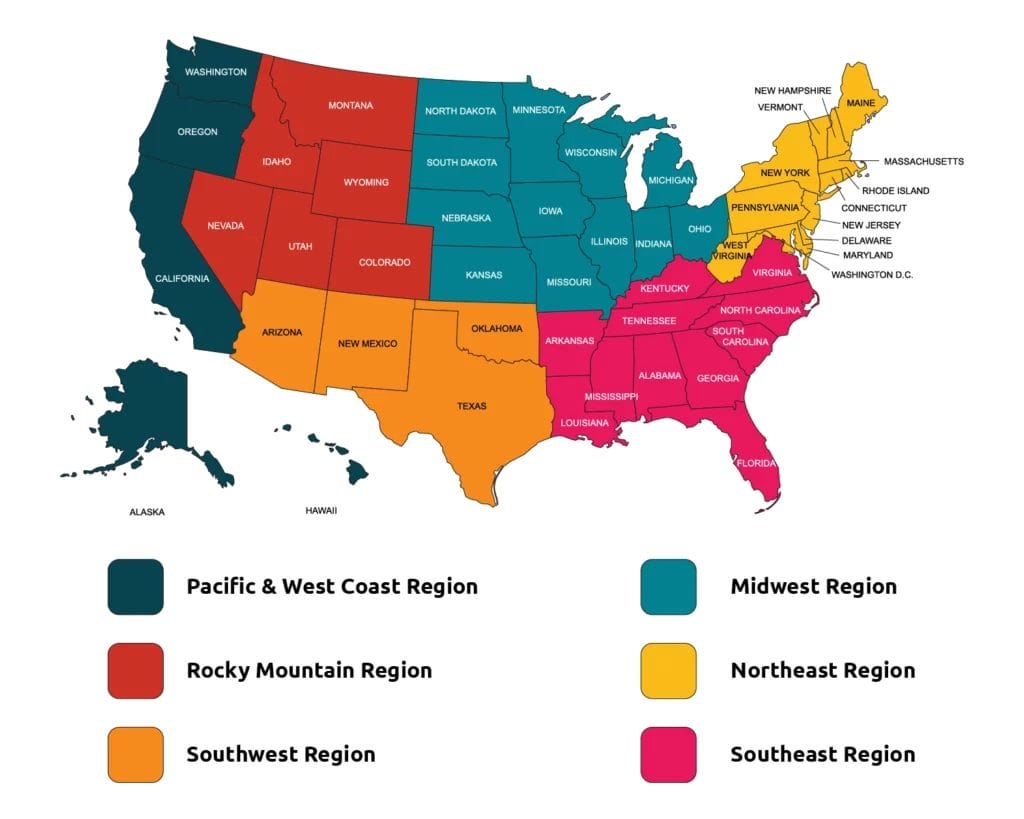
- Alaska: Alcohol & Marijuana Control Office
- California: Alcoholic Beverage Control
- Hawaii: Liquor Licenses and Permits
- Oregon: Oregon Liquor and Cannabis Commission
- Washington: State Liquor and Cannabis Board
- Colorado: Liquor Enforcement Division
- Idaho: Alcoholic Beverage Licensing
- Montana: Alcoholic Beverage Control
- Nevada: Nevada State Liquor License Application
- Utah: Licenses & Permits
- Wyoming: Wyoming Liquor Division
- Arizona: Arizona Department of Liquor Licenses and Control
- New Mexico: Alcoholic Beverage Control Division
- Oklahoma: Oklahoma ABLE Commission
- Texas: TABC Licenses and Permits
- Illinois: Illinois Liquor Control Commission
- Indiana: Indiana Alcohol and Tobacco Commission
- Iowa: Department of Revenue Permits & Licensing
- Kansas: Kansas Department of Revenue
- Michigan: Liquor Control Commission
- Minnesota: Alcohol and Gambling Enforcement
- Missouri: Missouri Division of Alcohol and Tobacco Control
- Nebraska: Nebraska Liquor Control Commission
- North Dakota: North Dakota Attorney General Retail Alcoholic Beverage License
- Ohio: Department of Commerce Liquor Control
- South Dakota: Department of Revenue: Alcohol
- Wisconsin: Department of Revenue Alcohol Beverage
- Connecticut: Department of Consumer Protection
- Delaware: Delaware Alcoholic Beverage Control
- Maine: Maine Bureau of Alcoholic Beverages and Lottery Operations
- Maryland: The Maryland Alcohol, Tobacco, Cannabis Commission
- Massachusetts: Alcoholic Beverages State Licenses
- New Hampshire: Liquor Commission, Division of Enforcement
- New Jersey: Division of Alcoholic Beverage Control
- New York: New York State Liquor Authority
- Pennsylvania: Pennsylvania Liquor Control Board
- Rhode Island: Liquor Enforcement and Compliance
- Vermont: Liquor Control
- Washington D.C.: Alcoholic Beverage and Cannabis Administration
- West Virginia: Alcohol Beverage Control Administration
- Alabama: Alabama ABC Board Licensing & Compliance
- Arkansas: Alcoholic Beverage Control
- Florida: Alcoholic Beverages & Tobacco
- Georgia: Department of Revenue Alcohol & Tobacco
- Kentucky: Department of Alcoholic Beverage Control
- Louisiana: The Louisiana Office of Alcohol and Tobacco Control
- Mississippi: Alcoholic Beverage Control
- North Carolina: ABC Commission North Carolina
- South Carolina: Alcohol Beverage Licensing
- Tennessee: Alcoholic Beverage Commission
- Virginia: Virginia ABC
Follow the directions for your state’s application and provide all of the information you’ve gathered. Some areas will also require you to complete a local application for your specific jurisdiction, so read the guidelines closely to make sure you complete all of the necessary steps.
Many areas include a public notice period as part of the approval process. This means that you need to post a written notice at your establishment to give the community a chance to object. You may also need to attend a public hearing to present your case for obtaining a liquor license.
You may need to submit to an inspection of your business as well. Similar to a food health inspection, this allows local authorities to ensure you meet all of the safety and legal requirements.
How Much for an Alcohol License?
The average cost of a liquor license is around $1,400 per year. However, this depends on several factors.
First off, most states charge a non-refundable application fee to begin the process. This usually costs around $100 to $300 depending on the type of license you apply for and where you operate.
The actual cost of your liquor license depends on what kind of license you need, where you’ll operate, and how long you need it. Fees vary greatly between states and even smaller jurisdictions. For instance, a California liquor license can be as high as $13,800, while it could be as low as $100 in Idaho.
The renewal fee for your liquor license will also vary depending on where you operate and what kind of business you run. It could be as low as $50 or as high as the full cost of the original permit. However, a license renewal is typically significantly less expensive than your initial investment.
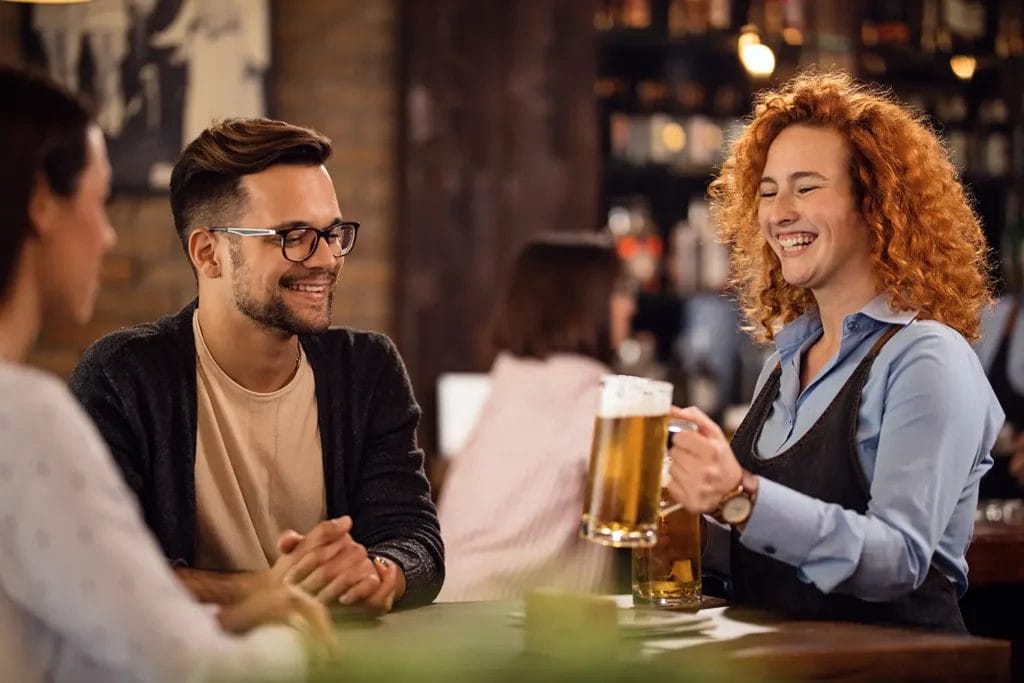
What You Need to Know About Dram Shop Laws
Even after you secure your alcohol vendor license, you still need to follow some important laws when serving wine, beer, and spirits. Dram shop laws hold the people or businesses that serve alcohol responsible for damages caused by their patrons while intoxicated.
While the specifics and severity of punishments differ, dram shop laws typically apply if you accidentally overserve a customer or provide alcohol to an underage guest.
In either case, if that intoxicated customer goes on to hurt somebody (including themselves) or cause property damage, you can be held liable.
Dram shop laws make it even more important to be cautious when serving alcohol to patrons. Not only could you face judgments and legal fees if you slip up, but you could also lose your license to sell alcohol or even receive jail time.
Here are a few tips for how to sell alcohol safely and legally:
- Always check identification before serving a customer or guest and inspect closely for authenticity.
- Offer food and water at the bar.
- Watch customer behavior and cut them off if they show signs of intoxication.
- When possible, monitor how many drinks customers consume.
- Keep transportation service information on hand to help prevent drunk driving.
Even when you do everything right, accidents happen. That’s why anybody who serves or sells alcohol should carry dram shop insurance, which can cover medical bills, court fees, repair costs, and other expenses resulting from alcohol-related claims.
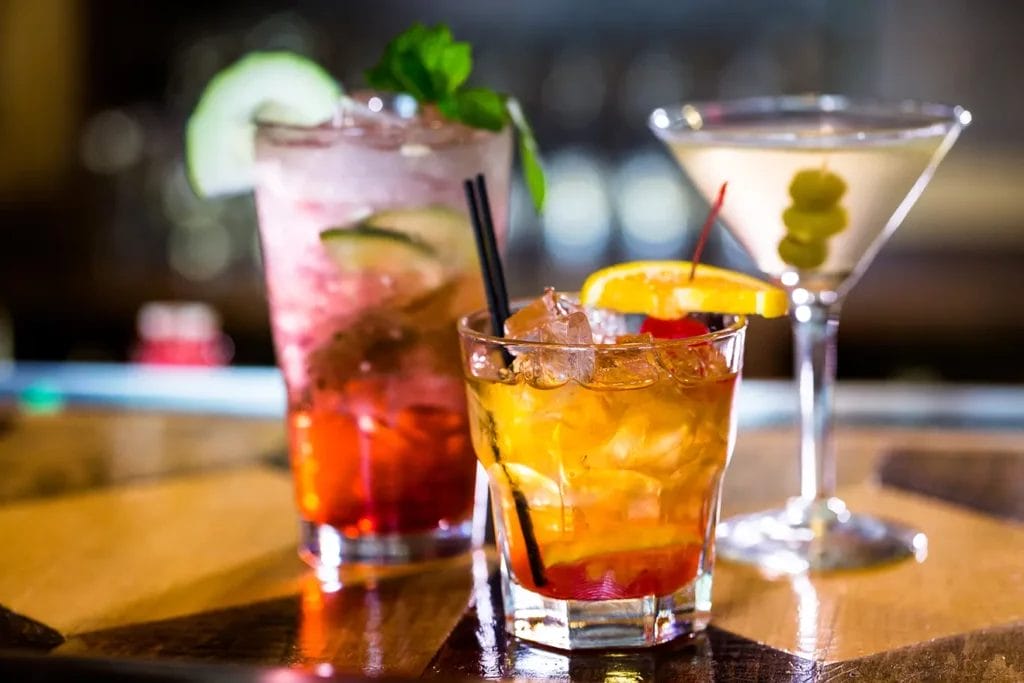
Liquor Liability Insurance Legal Requirements
You may find that you are required to carry liquor liability insurance either due to jurisdictional laws or contractual obligations.
States like Massachusetts and Alabama require liquor licensees to carry liability insurance at all times. You may need to produce proof of insurance when you apply for or renew your liquor license. This demonstrates that you are prepared to financially cover the cost of alcohol-related accidents involving your business.
If you run an event bartending business, most coordinators and venues require you to produce your Certificate of Insurance (COI) before you can sign a contract. In fact, you may even need to add them as Additional Insureds on your policy for the duration of the event.
Even if you aren’t legally or contractually obligated to carry liquor liability coverage, it’s still essential. A single claim can cost hundreds of thousands of dollars. If an accident occurs, insurance protects you from paying out-of-pocket so you can keep the open sign lit.
How to Sell Alcohol Legally: What You Need to Know
With so many laws and regulations, understanding what applies to your specific business can feel like facing a Friday night happy hour solo.
While it’s important to research your local requirements to ensure your alcohol-serving business is compliant, we can help point you in the right direction.
How Old Do You Have to Be to Sell Alcohol?
The rules on how old you need to be to sell alcohol vary by state. Many areas also have different stipulations for servers versus bartenders.
First, here’s a breakdown of the age servers must be to serve alcohol:
- Alaska, Nevada, and Utah: 21 or older
- Arkansas, Idaho, Indiana, Nebraska, and
- Ohio: 19 or older
- Maine and Michigan: 17 or older
- West Virginia: 16 or older
- Remaining states: 18 or older
The legal age for bartenders trends higher across the US, typically setting the bar at 18 or 21 years old with a few outliers.
The following states also require a manager or supervisor to be present when underage employees serve alcoholic beverages:
- Alabama
- Colorado
- Hawaii
- Indiana
- Kansas
- Kentucky
- Maine
- Massachusetts
- North Dakota
- West Virginia
- Wisconsin
Do You Need a Liquor License to Sell Beer and Wine?
Yes, if your business sells alcohol of any kind, you need to have a liquor license. If your operation only offers wine and beer, you may qualify for a lower-tier permit, which can be less expensive and easier to obtain in some states.
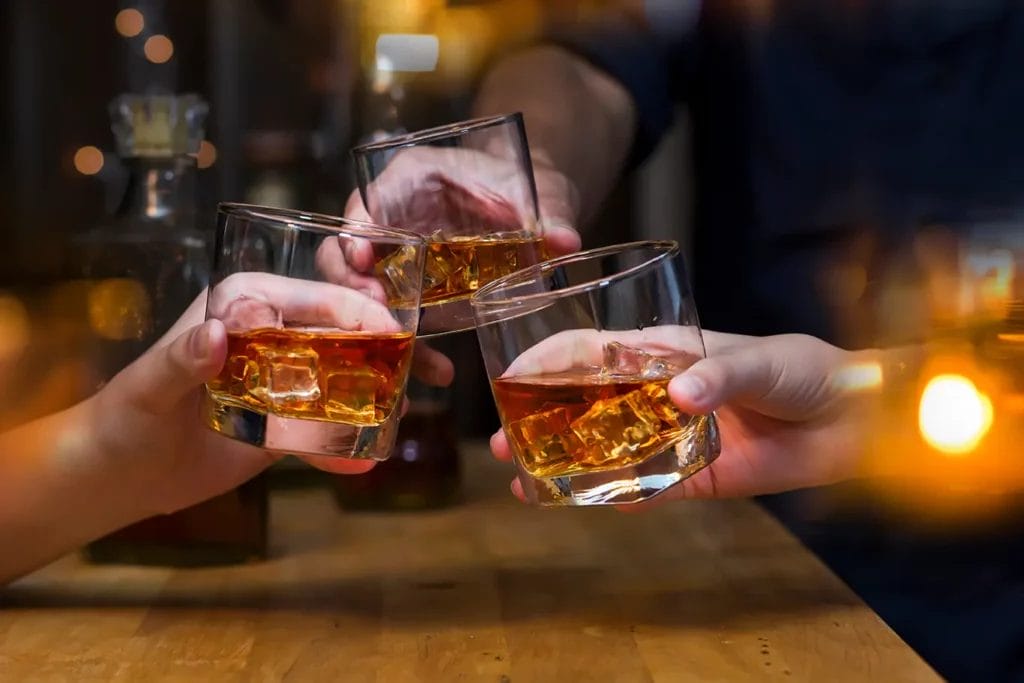
Do You Need a License to Serve Alcohol at an Event?
Event vendors are often required to have a license to serve alcohol, though the specific licensing requirements are different in every state. Many local laws also depend on factors like the nature of your business, the type of event, the number of guests, and where it takes place.
For example, if you are an event caterer who serves alcohol, you may need an alcohol catering license or a temporary permit.
Do You Need a Liquor License to Serve Alcohol?
If you operate a business that serves and sells alcoholic beverages, you need a liquor license. However, your state may not require one if you are only hosting a one-time private event. Always check local requirements before hosting.
What Kind of Liquor License Do I Need for a Mobile Bar?
Mobile bars typically require a different set of licenses and permits to operate, but that still includes a liquor license.
Depending on where you operate, your area may have a specific license option for mobile businesses. If you work with venues, it may be their responsibility to obtain a liquor license.
Do You Need a Bartending License to Serve Alcohol?
Bartenders do not typically need to have their own liquor license to serve alcohol, that is the responsibility of their employer or venue. However, many states require bartenders to have an operator’s license, such as Wisconsin and Michigan. Bartenders may also have to complete an alcohol safety training program.
Can You Go to Jail for Selling Alcohol Without a License?
Selling alcohol without a license is illegal, but doesn’t usually result in jail time. Most states classify this offense as a misdemeanor, which can result in hefty fines. If you have a record of selling wine, beer, or spirits without the proper permits, it could make it difficult to obtain a license in the future.
Can a Business Serve Alcohol Without a License?
Businesses that profit from the sale or service of alcohol must have a license to operate legally. If you do not operate an alcohol-based business and want to serve alcohol (like a salon that offers champagne to clients), some states still require a liquor license while others don’t.
If your business is hosting an event where alcohol is served, you may need a temporary liquor permit. You should always check local regulations before popping the cork.
Serve With Confidence
Serving and selling alcohol comes with a lot of responsibility. From learning liquor license laws to following safe service practices, there is a long list of information to learn, implement, and stay up to date with.
As you delve into the world of legal and safe alcohol service, always remember to research the laws in your state, county, and city. Regulations are so different across the country that there are very few universal rules for businesses to follow.





